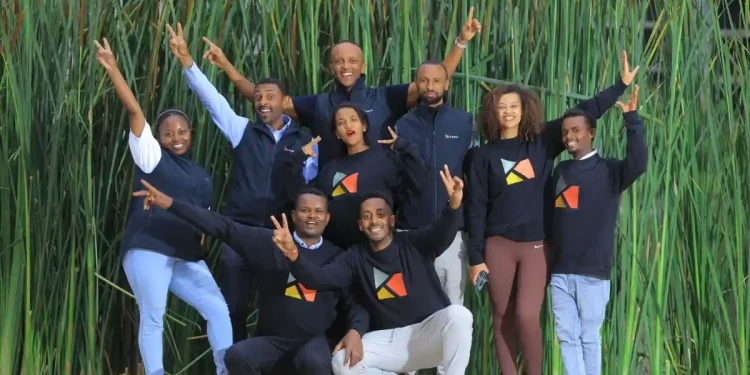Several Venture Capital firms raised an additional US$ 1.9 million in seed funding to enable Kubik, an Ethiopian eco-startup to ramp up production of cheap building materials from plastic waste.
- VC firm, African Renaissance Partners, led the funding round alongside Endgame Capital, a climate tech investment firm; Ethiopian Pharo Ventures, and King Philanthropies – which invests in programs that eliminate poverty.
- The startup, founded in 2021 by Kidus Asfaw and Penda Marre, opened its factory recently at the Adama Industrial Park in Addis Ababa specializing in the conversion of plastic waste into low-carbon bricks, columns, and beams.
- The investment will enable the startup to accelerate its expansion in Ethiopia, even as it looks forward to crossing the borders into other African countries by 2025.
“We are thrilled to close our US$ 5.2 million seed funding round and welcome our stellar new investors. They have seen Kubik’s compelling market opportunity, our delivery against our strategy to date, and share our purpose-driven vision to build sustainably and affordably to a brighter, greener future,” said the CEO and co-founder of Kubrik, Kidus Asfaw.
Kubik’s double-pronged innovation will enhance government and private sector goals in providing affordable housing as well as reduce environmental pollution by unrecycled plastic. According to the founders, Kubik’s building materials cost 40% less per square meter compared to other building materials such as cement. Moreover, their low-carbon value reduces greenhouse emissions by five times.
The investment was made with an optimistic vision at sight. The global affordable housing business sits at more than US$ 2.2 trillion due to rising demand. With deficits of over 300 million housing units, alternative housing materials that are less costly and environment-friendly are projected to stake more interest.
Kubik was feted as the ‘Global Startup of the Year‘ in 2023 at the VivaTech conference. The startup’s new factory will require its founders to scale up its waste collection labour force, as well as utilize technology that would trace plastic waste and its impacts.
See Also:




